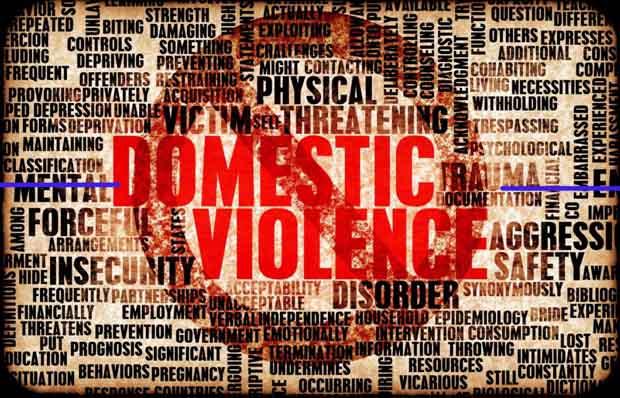Chicago Domestic Violence Lawyer

Chicago Criminal Defense Lawyer Andrew M. Weisberg – Defense Against Domestic Violence Charges
Domestic violence accusations in Illinois are serious and often life-altering. A conviction can affect your freedom, reputation, and relationships, as well as your job and housing opportunities. If you are charged with domestic battery or violation of an order of protection in Chicago or the surrounding suburbs, it is critical to act quickly and secure an experienced defense attorney. Andrew M. Weisberg is a seasoned Chicago criminal defense lawyer who provides aggressive, strategic representation to protect your rights and pursue the best possible result.
Understanding Domestic Battery in Illinois
Domestic battery is one of the most common charges within the category of domestic violence. Under Illinois law (720 ILCS 5/12-3.2), a person commits domestic battery when he or she knowingly:
• Causes bodily harm to a family or household member, or
• Makes physical contact of an insulting or provoking nature with that person.
Family or household members include spouses, former spouses, parents, children, stepchildren, individuals who share or once shared a home, people who share a child, dating or former dating partners, and disabled persons with their caregivers.
Domestic battery is usually a Class A misdemeanor, punishable by up to 364 days in jail and fines of up to $2,500. However, aggravating circumstances—such as prior convictions or significant injury—can elevate the charge to a Class 4 felony, exposing you to longer prison terms and higher fines.
Violation of an Order of Protection
An Order of Protection is a court order intended to prevent further abuse or harassment. Violating its terms is a separate criminal offense under 720 ILCS 5/12-3.4.
Common provisions include:
• No direct or indirect contact with the protected person
• Required distance from the individual’s home, work, or school
• Temporary loss of firearm possession and FOID privileges
• Restrictions or suspension of child visitation rights
A first violation is a Class A misdemeanor, but repeated violations are prosecuted as Class 4 felonies, carrying possible prison time.
Consequences of a Domestic Battery Conviction
The penalties extend far beyond fines or jail. A conviction can lead to:
- Permanent criminal record – Domestic battery is not eligible for expungement or sealing, and employers and landlords can view it on background checks.
- Loss of firearm rights – Even a misdemeanor conviction revokes your FOID card and bars you from owning or possessing firearms.
- Child-custody limitations – A conviction may be used in family court to restrict or terminate custody or visitation.
- Professional and social impact – The stigma can damage personal and professional relationships and limit career opportunities.
Building a Strong Defense Against Domestic Violence Charges
Domestic violence allegations are often emotional, complex, and sometimes exaggerated. A skilled defense lawyer can uncover inconsistencies and challenge assumptions that drive these cases. Andrew M. Weisberg has defended numerous clients accused of domestic battery and related offenses throughout Cook County.
Possible defense strategies include:
• Self-defense or defense of others – Showing that your actions were legally justified.
• False allegations – Demonstrating that the claims were fabricated or exaggerated, often during family or custody disputes.
• Insufficient evidence – Challenging the reliability of witnesses, police reports, or physical evidence.
• Violation of rights – Suppressing evidence obtained through unlawful searches or improper interrogation.
Why Choose Andrew M. Weisberg
As a former Cook County prosecutor, Andrew M. Weisberg understands exactly how the State investigates and prosecutes domestic-violence cases. He uses that insider perspective to anticipate prosecutorial strategy, identify weaknesses, and craft defenses that stand up in court. Each client receives direct communication, personalized attention, and an unwavering commitment to achieving the best outcome possible.
Frequently Asked Questions About Domestic Violence Cases in Chicago & Cook County
Domestic violence generally includes any act of physical harm, harassment, intimidation, or interference with personal liberty involving partners, spouses, family members, former partners, co-parents, household members, or people in a dating relationship. Even minor physical contact or verbal threats may lead to charges. Illinois treats domestic violence cases with heightened seriousness, and even first-time offenders can face life-altering consequences.
Domestic battery typically involves physical contact of an insulting or provoking nature or causing bodily harm to a household or family member. Aggravated domestic battery involves more serious allegations such as great bodily harm, permanent disability, strangulation, or prior convictions. Aggravated domestic battery is a felony and carries mandatory prison time in many circumstances.
No. Domestic violence cases are prosecuted by the State of Illinois, not the complaining witness. Even if the alleged victim wants to drop the case, the prosecutor can continue pursuing charges. However, statements or positions of the alleged victim may still influence negotiations, bond conditions, and outcomes.
Most domestic violence cases begin in the Domestic Violence Courthouse at 555 West Harrison Street in Chicago. At the first appearance, the judge reviews the allegations, bond, and any protective-order conditions. You may be ordered to stay away from the complaining witness, vacate a shared residence, or surrender firearms. An attorney is critical at this stage to argue for appropriate release conditions and protect your rights.
Yes. Domestic battery is one of the few misdemeanors in Illinois that cannot be expunged or sealed if you are convicted. This means a conviction can permanently appear on your record, affecting employment, housing, and licensing. Avoiding a conviction — through dismissal, reduction, or alternative resolutions — is essential.
False or exaggerated claims happen frequently in domestic violence cases, especially during breakups, divorces, or custody disputes. A strong defense may include challenging inconsistent statements, questioning the credibility of the complaining witness, investigating injuries or lack of injuries, and presenting evidence that contradicts the accusation. An experienced attorney can often expose weaknesses in the State’s case early.
Domestic violence cases move quickly and often involve sensitive facts, emotional testimony, and strict legal procedures. A skilled defense attorney can challenge the evidence, negotiate with prosecutors, uncover witness issues, address inconsistent statements, evaluate 911 calls or body-worn camera videos, and argue for the removal or modification of protective orders. Effective representation often makes the difference between dismissal and a life-long conviction.
Do not violate the order under any circumstances, even if the complaining witness contacts you or wants to reconcile. Any contact — even by text — can result in new criminal charges. Instead, speak with an attorney immediately. You are entitled to a hearing where the validity and scope of the order can be challenged.
Not without a court modification. Violating a stay-away or “no contact” order can lead to new misdemeanor or felony charges, depending on the circumstances. Your attorney can file the appropriate motions to seek modification, but you must strictly follow the judge’s current order until it is changed.
Domestic violence cases require a lawyer who is comfortable in the Domestic Violence Courthouse, understands prosecutors’ tendencies, and has handled large numbers of these cases. Look for an attorney with substantial Cook County experience, strong negotiation skills, trial experience, and a background in both prosecution and defense. You should feel confident that your lawyer communicates clearly, responds promptly, and understands the unique pressures of domestic violence allegations.
Contact Andrew M. Weisberg for a Free Consultation
If you or someone you care about is facing charges of domestic battery or violating an order of protection in Chicago, do not delay in seeking representation. The consequences of a conviction are severe and permanent.
Call (773) 908-9811 to speak directly with Andrew M. Weisberg or complete the online Case Review Form for immediate, confidential help.
Your freedom, reputation, and future are too important to risk. Let Andrew M. Weisberg provide the strong, informed defense you need.




















